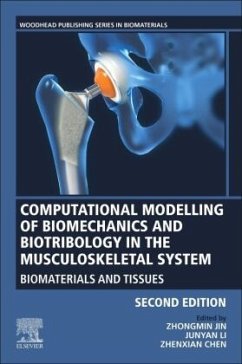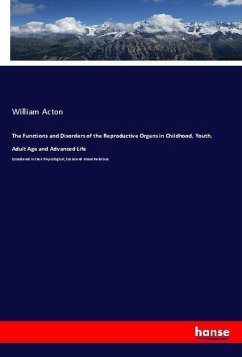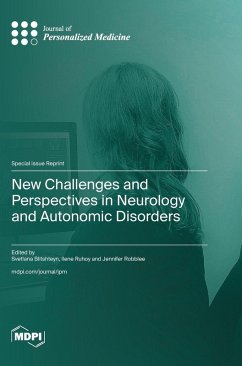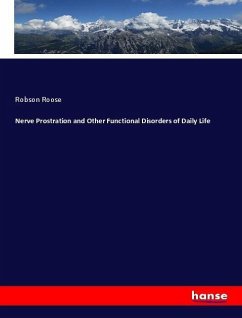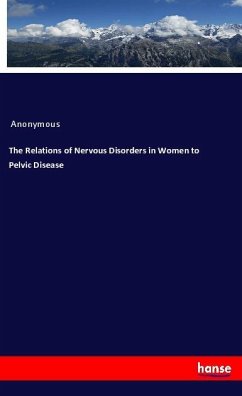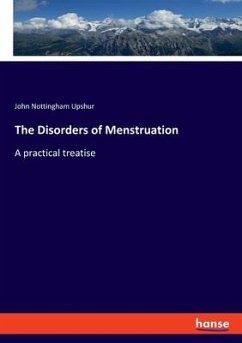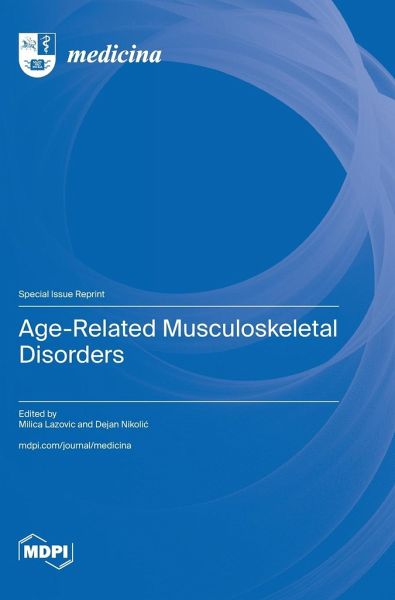
Age-Related Musculoskeletal Disorders
Versandkostenfrei!
Versandfertig in 1-2 Wochen
69,99 €
inkl. MwSt.

PAYBACK Punkte
35 °P sammeln!
Musculoskeletal disorders (MSDs) are associated with various degrees of disability affecting participation in activities of daily living (ADL) and the overall quality of life (QoL) of affected individuals. MSDs pose a significant burden to health systems, social care systems and caregivers. Such disorders encompass a diverse group of conditions affecting bones, muscles and joints, including degenerative conditions, inflammatory rheumatic diseases, fragility conditions and several types of bodily pain. Common musculoskeletal degenerative conditions in the elderly population include osteoporosis...
Musculoskeletal disorders (MSDs) are associated with various degrees of disability affecting participation in activities of daily living (ADL) and the overall quality of life (QoL) of affected individuals. MSDs pose a significant burden to health systems, social care systems and caregivers. Such disorders encompass a diverse group of conditions affecting bones, muscles and joints, including degenerative conditions, inflammatory rheumatic diseases, fragility conditions and several types of bodily pain. Common musculoskeletal degenerative conditions in the elderly population include osteoporosis and osteoarthritic changes in the joints and spine. Furthermore, MSDs are common in multimorbidity. Therefore, it is important to utilize the proper diagnostic tools and the adequate therapeutic modalities that are carried out by a multiprofessional team, and if needed in certain conditions, by an interprofessional team as well. This approach is vital for the optimal treatment course and outcomes. Additionally, special consideration should be given to frailty, particularly in elderly persons with multiorgan dysfunction, where the important component is sarcopenia, resulting in a loss of muscle mass and a decline in strength, thereby leading to functional deterioration. In this Special Issue, the current and experimental diagnostic and therapeutic modalities are presented, as well as preventive measures for improving the functioning and overall quality of life for individuals with MSDs.



